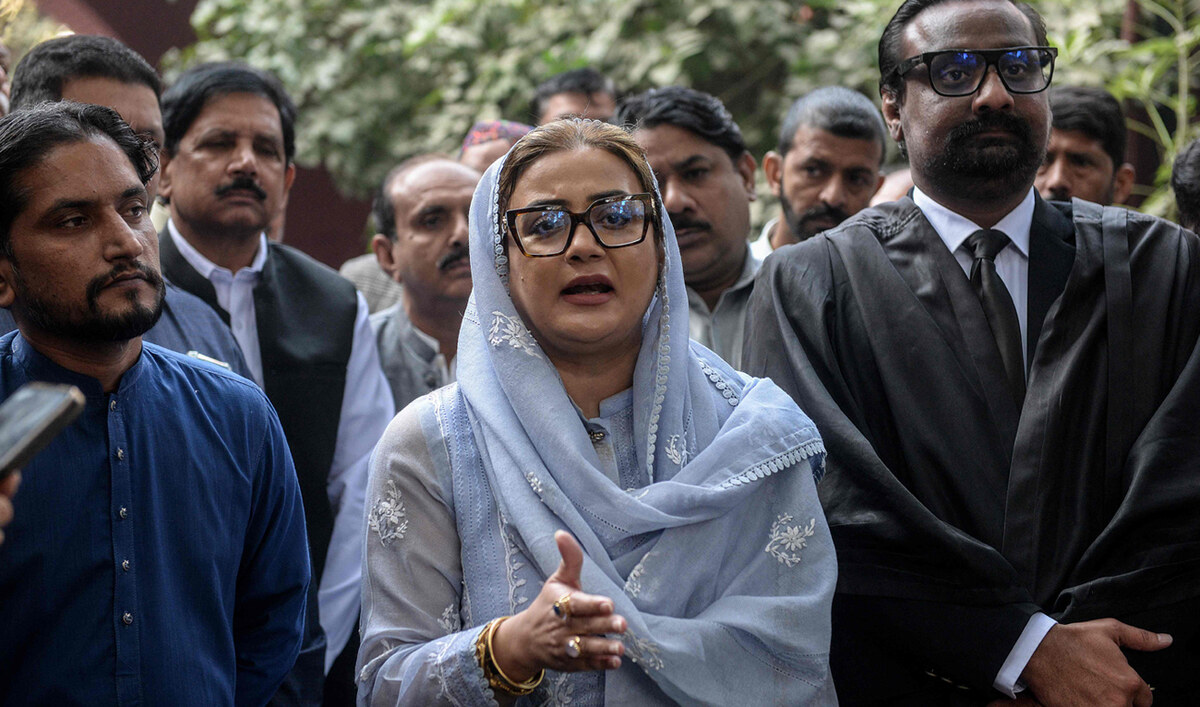KARACHI: A teenaged girl, who disappeared in April from her home in Karachi and was recovered from Punjab last week, is aged between 16 and 17, a medical examiner said on Tuesday, in a case that has divided public opinion on whether the girl was kidnapped or she ran away of her own choice.
The parents of Syeda Dua Zehra Kazmi filed a first information report (FIR) on April 16 alleging that their daughter had been kidnapped after she went to throw trash outside their home in the provincial capital of Sindh. The incident unleashed widespread outcry online and on media, prompting authorities to take notice and launch a search.
Kazmi's parents say she is underage but in a video statement released ten days after her disappearance, the girl said she was an adult and had not been kidnapped but had married a man, Zaheer Ahmed, of her “free will.” The legal age of marriage in Sindh is 18.
“As per opinion of Dr Saba Jameel, chief radiologist, department of radiology, Civil Hospital Karachi, bone age is between 16 to 17 years (sixteen to seventeen years), more towards 17 years,” read a report by Dr Laraib Gul, women medico-legal officer at Karachi's Civil Hospital.
The girl was brought for medical examination on Monday, according to the report, which will be submitted in court on Wednesday.
Kazmi was produced before the Sindh High Court on Monday after the Sindh and Punjab police recovered her in a joint raid in Bahawalnagar last week.
The court ordered the medical test to determine the age of the girl after she recorded a statement saying she wanted to be with her husband, not her parents.
Sindh Advocate General Salman Talibuddin shared basic information about the case at the outset of Monday's proceedings.
“What we understand is that this young girl left our province [Sindh] on her own and it was in Punjab that she contracted the marriage,” he said.
“This boy was in Punjab. She left on her own from Karachi. So, the question of kidnapping or abduction does not arise. And they contracted the marriage in Punjab so they committed no violation of the Sindh child restraint act," Talibuddin said, referring to the Sindh Child Marriages Restraint Act, 2013, which prohibits the marriage of a child under the age of eighteen and provides penalties for a male contracting party, the person who solemnizes the marriage as well as the parent or guardian concerned.
In Punjab, the legal age for marriage is 16.
But Altaf Ahmed Khoso, the counsel of the Kazmi family, told reporters on Monday he would contest in court the crime had happened in Sindh and as such, the law of her home province should be applied to declare the marriage null and void.
Pakistan in 2017 outlawed child marriage and toughened penalties for those guilty of the crime in an effort to crack down on the practice which is estimated to affect one in five girls in the country.
The legislation passed by the National Assembly, or lower house of parliament, also banned forced marriage involving women from minority groups.
Under the law, offenders face a minimum of five years in prison and may serve up to 10 years. They also face a fine of up to 1 million rupees. Before the change in law, offenders faced a minimum of three years in prison and a fine of 500,000 rupees.
According to the UN children’s agency UNICEF, around 21 percent of girls in Pakistan are married before the age of 18.
Local advocacy group, the Society for the Protection of the Rights of the Child (SPARC), estimates that almost 58 percent of girls are child brides in rural areas.

















